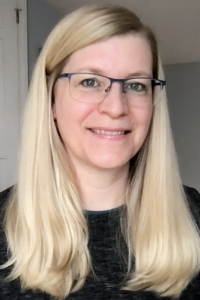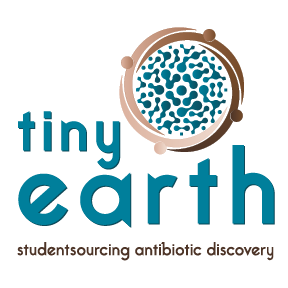
Sarah Miller
Sarah is the Executive Director of Tiny Earth at the University of Wisconsin-Madison, overseeing the international network of 800+ trained Tiny Earth Partner Instructors (TEPIs) who teach an estimated 16,000 students per year in 33 countries. She serves as principal investigator (PI) on several grants, oversees the Tiny Earth Headquarters staff, coordinates fundraising efforts, and leads strategic direction for the network. During her time at Tiny Earth, she has published in peer-reviewed journals such as CBE-Life Sciences Education, Journal of Microbiology and Biology Education, and Science. She is the lead author on the Scientific Teaching Course, an interactive, online course about active and inclusive learning for college STEM faculty. She regularly leads presentations and workshops about Tiny Earth, scientific teaching, and equity in STEM education and has been the plenary speaker at conferences such as National Association of Biology Teachers and American Society for Microbiology Conference on Undergraduate Education.
Sarah’s professional interests focus on STEM education, with an emphasis on active and inclusive learning, institutional transformation at scale, and faculty development in higher education. In recognition for her contributions to STEM education, Sarah has been named a National Academies Education Mentor in the Life Sciences and received the UW-Madison Teaching Academy Distinguished Teaching Award.
She was trained as a biologist at UW-Madison. During her graduate work in plant pathology, she investigated the environmental impact of genetically modified organisms (GMOs) by analyzing the microbial communities affiliated with plant roots. As an undergraduate majoring in botany, she researched plant ecology and evolution in areas ranging from the top of tropical Venezuelan tepuis (plateaus) to the bottom of Northern Wisconsin lakes.
She previously led two services in DoIT Academic Technology at UW-Madison that focused on transforming courses to active and blended learning. These services, Faculty Engagement and Strategic Learning Technology Consulting, account for 60% of the faculty development available for teaching and learning at UW, and 90% of the services for teaching with technology. She also led REACH, a Provost-level initiative to redesign UW’s highest-enrollment courses to be more active and inclusive, coordinating curricular transformation in 10 departments, with 80+ faculty and staff, and 450+ graduate teaching assistants who teach 10,000+ enrolled students per year, primarily in STEM.
In 2012-14, she built and led the first four cohorts of Madison Teaching and Learning Excellence (MTLE), an intensive year-long program for UW’s early-career faculty. The program enrolled 52 faculty who taught 7,000+ undergraduates in 106 courses during that time, transforming the landscape of educational training for junior faculty.
While directing the Wisconsin Program for Scientific Teaching in the 2000s, she created and taught multiple graduate-level courses about scientific teaching and mentoring, as well as undergraduate science courses. She co-led and evaluated the National Academies Summer Institutes on Undergraduate Education in Biology (now called National Institute for Scientific Teaching, or NIST). During this time, she authored four publications in Science magazine, in addition to several publications in other education journals. She also founded the Scientific Teaching Book Series and is a co-author of the books Scientific Teaching and Entering Mentoring.
Publications
1. S Miller, PR Hernandez, W Du, CC Aldana, H Lee, N Maldonado, P Sandoval, J Vong, G Young, J Handelsman, NA Broderick, M Estrada. (2025). Tiny Earth CURE demonstrates equitable benefits for US college science students. CBE–Life Sciences Education 24(2). https://www.lifescied.org/doi/full/10.1187/cbe.23-06-0117
2. PR Hernandez, W Du, CC Aldana, N Broderick, J Handelsman, H Lee, L Luo, N Maldonado, H Miller, H, S Miller, M Patterson, R Pedersen, P Sandoval, J Vong, M Estrada. (2025). Boosting scientific community values: The impact of social inclusion interventions on biomedical instructors. Journal of Clinical and Translational Science 9(1)e105. https://doi.org/10.1017/cts.2025.81
3. W Du, H Lee, M Patterson, J Handelsman, N Broderick, S Miller, M Estrada, G Young, P Sandoval, CC Aldana N Maldonado, PR Hernandez. 2023. Amplifying similarity to promote college STEM instructor-student mentoring relationship Quality: A cluster randomized trial. Frontiers in Education 8(1293885). https://doi.org/10.3389/feduc.2023.1293885
4. S Miller, J Kerr, and J Handelsman. 2022. AJEDI in science: Leveraging instructor communities to create antiracist curricula. J. Microbio. Bio. Educ. 23(1). https://doi.org/10.1128/jmbe.00248-21
5. E González-Orta, D Tobiason, BJ Gasper, A Raja, and S Miller. 2022. Rapid pivot of CURE wet lab to online with the help of instructor communities. J. Microbio. Bio. Educ. 23(1). https://doi.org/10.1128/jmbe.00250-21
6. S Miller and J Handelsman. 2022. A CURE for the challenge of inclusive learning. ASCB Career Navigator Newsletter, June 2022.
7. J Handelsman, S Elgin, M Estrada, S Hays, T Johnson, S Miller, V Mingo, C Shaffer, and J Williams. 2022. Achieving STEM Diversity: Fix the classrooms. Science 376(6597). 10.1126/science.abn9515
8. A Hurley, M Chevrette, D Acharya, G Lozano, M Garavito Diago, J Heinritz, L Balderrama, M Beebe, M DenHartog, K Corinaldi, R Engels, A Gutierrez, O Jona, J Putnam, B Rhodes, T Tsang, S Hernandez, C Bascom-Slack, J Blum, P Price, D Davis, J Klein, J Pultorak, N Sullivan, N Mouncey, P Dorrestein, S Miller, N Broderick, J Handelsman. 2021. Tiny Earth: A big idea for STEM education and antibiotic discovery. mBio 12(1). https://doi.org/10.1128/mBio.03432-20
9. M Estrada, P Hernandez, J Handelsman, S Miller, N Broderick, M Patterson, J Nyanamba, Z Du, G Young, N Maldonado, L Watson, P Sandoval. 2020. Tiny Earth Pivot: Impacts of COVID-19 on Faculty Mentoring and Teaching. Figshare.
10. S Miller and KD Tanner. 2015. A Portal into Biology Education: An annotated list of commonly encountered terms. CBE-Life Sci. Ed. 14:2.
11. C Pfund, K Spencer, P Asquith, SC House, S Miller, CA Sorkness. 2015. Building the National Capacity for Research Mentor Training: An evidence-based approach to training-the-trainers. CBE-Life Sci. Ed. 14:2.
12. AJ Prunuske, J Batzli, E Howell, S Miller. 2012. Using Online Lectures to Make Time for Active Learning. Genetics 192:67.
13. C Pfund, S Miller, K Brenner, P Bruns, A Chang, D Ebert-May, A Fagen, J Gentile, S Gossens, I Khan, J Labov, CM Pribbenow, M Susman, L Tong, R Wright, WB Wood, R Yuan, J Handelsman. 2009. Summer Institute to Improve University Science Teaching. Science 324:470.
14. B Jacques-Fricke, A Hubert, S Miller. 2009. A Versatile Module to Improve Understanding of Scientific Literature through Peer Instruction. J. Coll. Sci. Teaching 39:24.
15. S Miller, C Pfund, CM Pribbenow, J Handelsman. 2008. Scientific Teaching in Practice. Science 322:1329.
16. KA Cloud-Hansen, JN Kuehner, L Tong, S Miller, J Handelsman. 2008. Money, Sex, and Drugs: A case study to teach the genetics of antibiotic resistance. CBE-Life Sci. Ed. 7:302.
17. A Phillips, A Robertson, J Batzli, M Harris, S Miller. 2008. Aligning Goals, Assessments, and Activities: An approach to teaching PCR and gel electrophoresis. CBE-Life Sci. Ed. 7:96.
18. C Pfund, CM Pribbenow, J Branchaw, S Lauffer, J Handelsman. 2006. The Merits of Training Mentors. Science 311:473.
19. A Pawley, C Pfund, S Lauffer, J Handelsman. 2006. A Case Study of “Diversity in the College Classroom,” a Course to Improve the Next Generation of Faculty. Am. Soc. Engr. Ed. 2006 Conf. Proc.
20. J Handelsman, D Ebert-May, R Beichner, P Bruns, A Chang, R DeHaan, J Gentile, S Lauffer, J Stewart, S Tilghman, and WB Wood. 2004. Scientific Teaching. Science 304:521.
Books (authored)
S Miller, J Handelsman, J Knight, M Knowles, S Flowers, C Theisen, et al. 2025. Scientific Teaching Course.
J Handelsman, S Miller, C Pfund. 2007. Scientific Teaching. W.H. Freeman and Co., NY.
J Handelsman, C Pfund, S Lauffer, CM Pribbenow. 2005. Entering Mentoring: A seminar to train a new generation of scientists. Itchy Cat Press, Madison WI.
Books in the Scientific Teaching Book Series (Founder and Editor)
C Dirks, MP Wenderoth, M Withers. (S Miller and WB Wood, Editors). 2014. Assessment in the College Classroom. W.H. Freeman and Co., NY.
S Slater, T Slater, J Bailey (S Miller and WB Wood, Editors). 2011. Discipline-based Education Research: A scientist’s guide. W.H. Freeman and Co., NY.
J Branchaw, C Pfund, R Rediske (S Miller and WB Wood, Editors). 2010. Entering Research: A facilitator’s manual: Workshops for students beginning research in science. W.H. Freeman and Co., NY.
D Allen and K Tanner (S Miller and WB Wood, Editors). 2009. Transformations: Approaches to college science teaching. W.H. Freeman and Co., NY.

